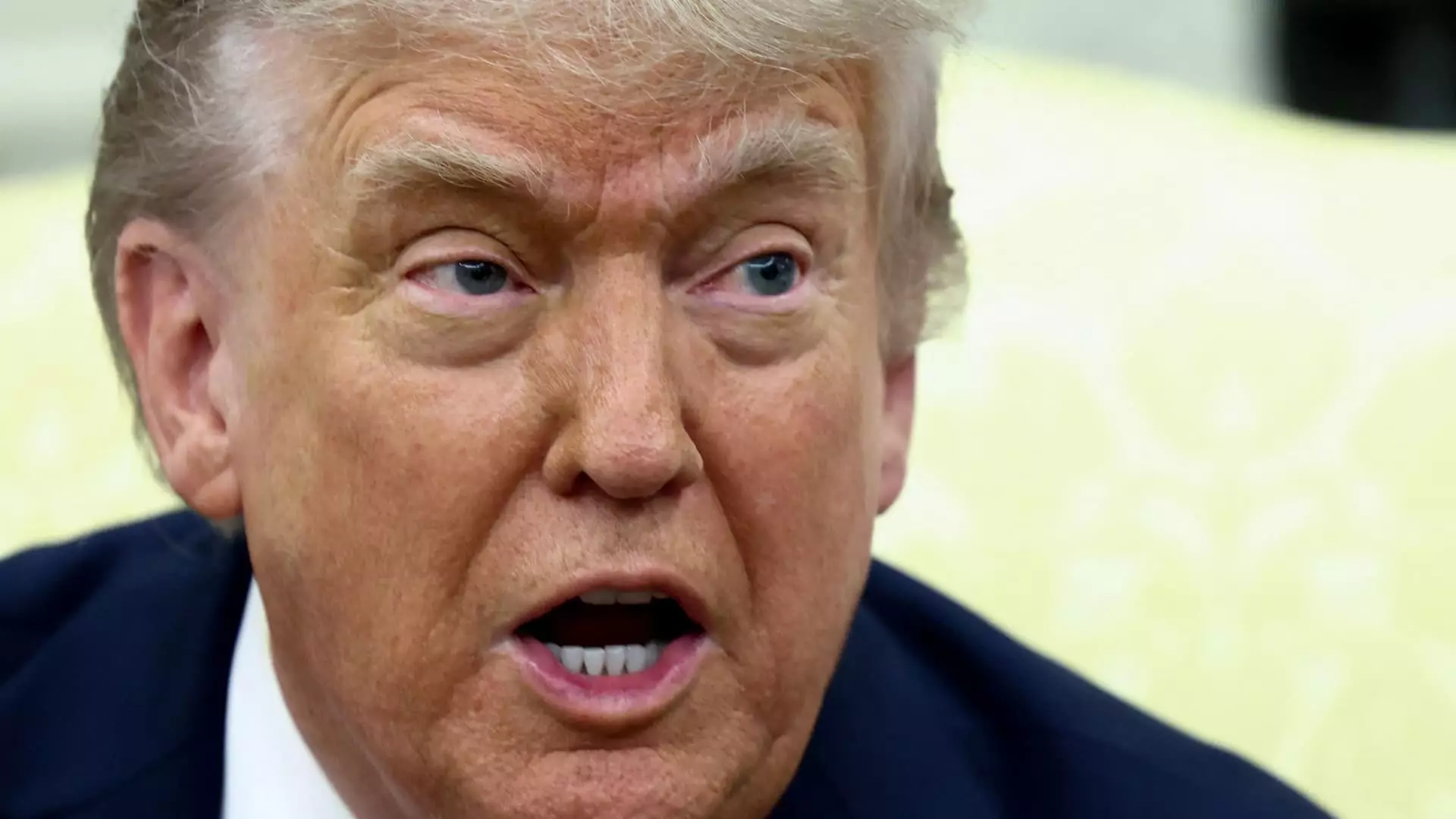In a dramatic display of political theater, former President Donald Trump has accused billionaire entrepreneur Elon Musk of harboring bitterness over the elimination of electric vehicle (EV) tax credits in his proposed tax bill, which the president pompously dubbed the “One, Big, Beautiful Bill.” Trump’s ire seems to stem from Musk’s increasingly vocal criticism of legislation he deems disastrous and riddled with waste—a sentiment Musk underscored when he referred to the bill as a “disgusting abomination.” This public spat not only illustrates the feeble alliance between corporate giants and government but also reveals a stark truth: the interests of billionaires often overshadow the collective needs of the population.
The irony is almost comical. Trump, the father of the “America First” agenda, touts an expansive tax bill purportedly aimed at stimulating the economy, while simultaneously seeking to undermine the very policies designed to promote sustainable energy and reduce our carbon footprint. The elimination of EV tax incentives—programs that not only support innovation but also help combat climate change—points toward a skewed prioritization of profits over the planet. It appears that for Trump, maintaining the status quo of fossil fuel subsidies takes precedence over addressing urgent environmental crises.
Elon’s Discontent: A Personal Grievance or a Public Issue?
Musk’s retort to Trump was brief and dismissive, encapsulated in one word: “Whatever.” This evokes a sense of disillusionment that runs deeper than a mere personal grievance; it reflects a broader disenchantment with an administration that claims to support American industries while suppressing initiatives beneficial to long-term environmental sustainability. Musk, though undoubtedly wealthy and influential, wielded his corporate power to raise pertinent concerns over the fairness of a tax bill favoring traditional energy sectors. His demands for the removal of excess “pork” from the legislation highlight a growing restlessness not just among entrepreneurs, but among citizens who recognize the misallocation of public funds.
What Musk fails to realize, however, is that his public persona as a self-made titan clouds his understanding of the average citizen’s plight. While he leads companies that hypothetically uplift their employees and innovate for the public good, he still embodies the corporate elite often disconnected from the realities faced by everyday Americans. In a political landscape rife with division, this insularity can easily morph into an apathy that thwarts meaningful progress.
The Political Underbelly: Trump’s Exclusionary Strategy
Trump’s dismissal of Jared Isaacman, a tech entrepreneur he deemed “totally Democrat,” serves as a clear signal of an administration willing to exploit power for partisan purity. The president’s judgment further exacerbates the divide between political factions, where progressive voices are silenced or disregarded, even when they hold expertise that could advance important initiatives, such as Mars missions or space exploration. It is this exclusionary strategy that drowns out the nuanced discussions needed to tackle today’s pressing challenges.
Nevertheless, this current saga illuminates the systemic flaws present within both political parties. Here we have a former president defending an ineffective and hypocritical tax bill and a billionaire who, despite his deep pockets, seems more concerned with the mechanics of gaming corporate subsidies than addressing larger social issues. Neither figure embodies the values of transparency or accountability that the American populace desperately seeks from their leadership.
A Call for Genuine Reform
The debate surrounding the “One, Big, Beautiful Bill” should catalyze a much-needed conversation about how we approach taxation and governance in this country. The elimination of subsidies for emerging technologies should never be lumped together with wasteful spending aimed at appeasing special interests. Rather than seeing tax policy as a tool for consolidating power, it must be viewed as an instrument for achieving social responsibility and environmental stewardship.
To cultivate a more equitable playing field, we must dismantle the prevalent culture of corporate welfare for a few while neglecting the potential of sustainable innovation for the many. What the American public needs is not another conflict between titans but a policy framework that encourages progressive technological advancements alongside responsible fiscal governance. Only through a collective effort can we forge a path toward a brighter, more inclusive future.


Leave a Reply